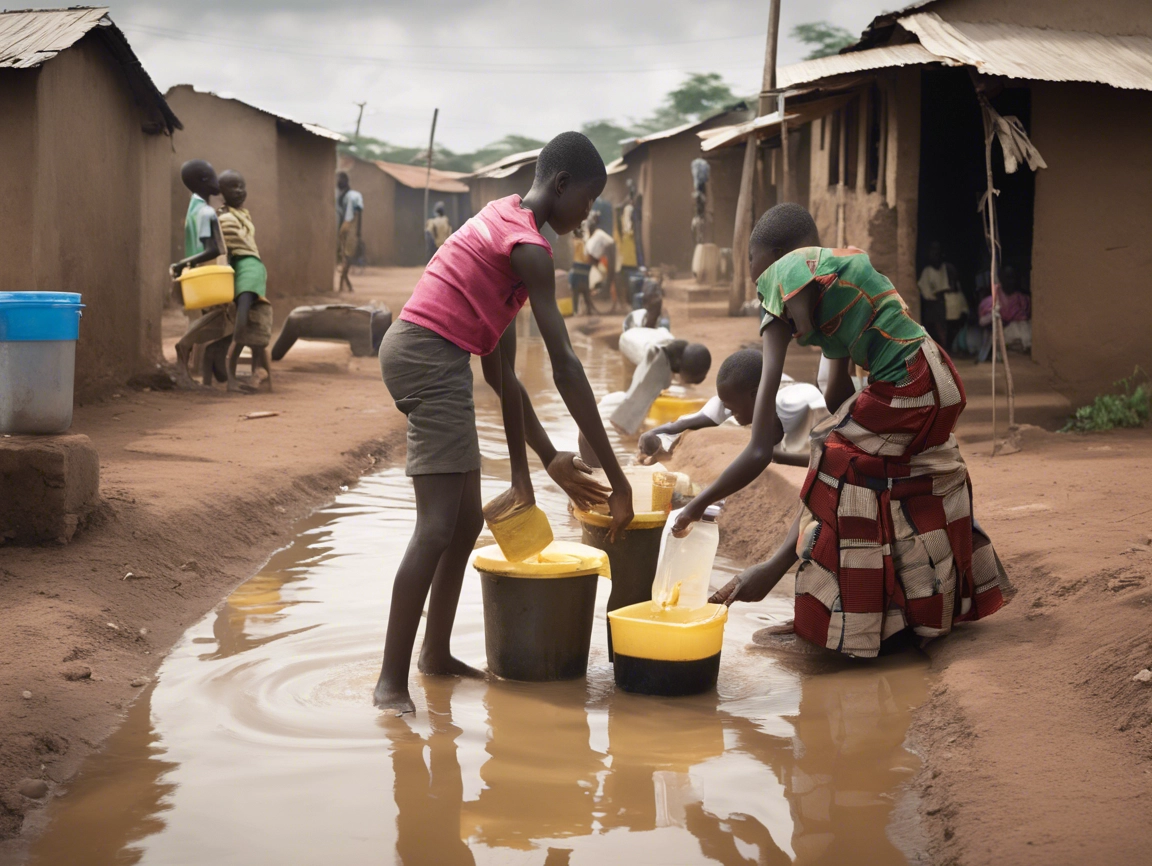|
Getting your Trinity Audio player ready...
|
Cholera, an acute diarrheal illness caused by the ingestion of contaminated water or food, has historically posed significant public health challenges in Ghana. As of 2023, the nation is grappling with a renewed outbreak that highlights the urgent need for awareness and preventive measures.
Ghana is experiencing a resurgence of cholera cases, particularly in densely populated urban areas. Reports from the Ghana Health Service (GHS) indicate that as of late October 2023, there have been over 1,200 confirmed cases and at least 50 deaths attributed to the outbreak. This surge is alarming, given that cholera is both preventable and treatable with timely medical intervention.
The cholera bacterium, Vibrio cholerae, typically spreads through contaminated water sources. Factors contributing to the current outbreak include:
1. Poor Sanitation and Hygiene: Many communities still lack access to clean drinking water and adequate sanitation facilities. A significant percentage of urban dwellers in Ghana rely on unsafe water sources.
2. Flooding: The seasonal rains have led to flooding in several regions, exacerbating the contamination of water supplies and creating ideal conditions for the spread of cholera.
3. Lack of Public Awareness: Despite ongoing health campaigns, many individuals remain unaware of cholera transmission and prevention methods.
Certain groups are more at risk during this outbreak, including:
1. Children under five: They are particularly susceptible due to their developing immune systems.
2. Pregnant women: They may experience more severe symptoms and complications.
– Individuals with weakened immune systems: Those with pre-existing health conditions are at higher risk.
Cholera symptoms can appear within hours of exposure and may include:
1. Severe diarrhea (often watery)
2. Vomiting
3. Dehydration
4. Muscle cramps
If left untreated, cholera can lead to severe dehydration and death within hours. It’s critical for anyone exhibiting these symptoms to seek medical attention immediately.
To combat the outbreak, the Ghanaian government and health organizations have emphasized the importance of preventive measures:
1. Access to Clean Water: Ensure that water sources are treated and boiled before consumption. Use water purification tablets where available.
2. Good Hygiene Practices: Regular handwashing with soap and clean water is essential, especially before handling food and after using the toilet.
3. Safe Food Preparation: Cook food thoroughly and avoid raw or undercooked seafood. Fruits and vegetables should be washed with clean water.
4. Vaccination: Oral cholera vaccines have been deployed in high-risk areas, aiming to provide immediate protection to vulnerable populations.
5. Community Education: Ongoing public health campaigns are crucial for educating communities about cholera symptoms and prevention strategies.
The Ghanaian Ministry of Health, in collaboration with various NGOs, is actively involved in managing the outbreak. Efforts include:
1. Rapid response teams to identify and treat cholera cases.
2. Community outreach programs to educate residents about hygiene practices.
3. Distribution of chlorine tablets for water purification.
The cholera outbreak in Ghana serves as a stark reminder of the importance of public health infrastructure and community awareness. By understanding the risks and implementing preventive measures, individuals can play a crucial role in mitigating the spread of cholera. It is vital to stay informed and vigilant, as the health and safety of communities depend on collective action.
For anyone in Ghana, maintaining hygiene, ensuring access to safe water, and seeking prompt medical care when symptoms arise are essential steps in protecting oneself and others from this preventable disease.


